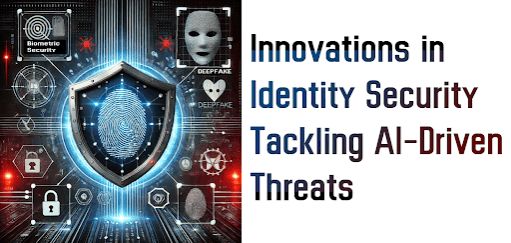
In an era where artificial intelligence (AI) is reshaping industries, identity security stands at the forefront of technological advancements. Tejeswar Reddy Velpucharla, exploring AI-driven identity threats, sheds light on the evolving challenges and innovations in this field. His insights reveal the sophisticated risks posed by AI-powered attacks and the latest countermeasures being developed to combat them.
Deepfake Detection: Strengthening Verification Systems
One of the most alarming advancements in AI is deepfake technology, which creates hyper-realistic synthetic identities that can bypass conventional verification systems. Recent developments in detection models have significantly improved accuracy rates. AI-driven frameworks using deep learning and transformer architectures can now identify fraudulent attempts with a 96.8% success rate. These sophisticated detection systems process thousands of identity verification requests per second, making them highly effective in real-time applications.
Combating Synthetic Identity Fraud
Modern fraud techniques now blend real and fabricated data to create convincing synthetic identities. Traditional verification systems struggle to detect these identities, often leading to high false-positive rates. However, AI-powered behavioral analysis tools have emerged as a game-changer. By analyzing user interaction patterns across multiple verification points, these systems can distinguish between real and synthetic profiles with increased precision. Real-time behavioral tracking ensures that anomalies are flagged instantly, reducing fraudulent activities in financial transactions.
Overcoming Regulatory Challenges in AI-Driven Identity Security
Cross-border identity verification remains a significant challenge due to varying regulatory requirements. Organizations often face compliance conflicts when implementing AI-based security solutions across different jurisdictions. To address this, AI-integrated compliance management systems are being developed, capable of adapting to regulatory changes within hours. These advanced systems ensure real-time compliance, reducing operational risks and costs associated with international regulatory frameworks.
Decentralized Identity Systems: A Future-Proof Solution
Decentralization is emerging as a promising solution to identity security challenges. Blockchain-based identity management systems offer a tamper-proof and transparent approach to authentication. These systems eliminate the need for centralized databases, significantly reducing risks associated with data breaches. Additionally, decentralized identity systems enhance user privacy by allowing individuals to control their personal data without intermediaries.
The Role of Quantum-Resistant Cryptography
As cyber threats become increasingly complex, traditional encryption methods face obsolescence. Quantum-resistant cryptography is gaining attention as a long-term solution for secure digital identity verification. These cryptographic protocols offer high-speed encryption while maintaining resistance against quantum computing attacks.
Advanced Behavioral Biometrics for Continuous Authentication
Static authentication methods, such as passwords and PINs, are no longer sufficient to combat AI-driven identity fraud. Advanced behavioral biometrics leverage deep learning models to continuously analyze user interactions. These models track unique behavioral markers, such as keystroke dynamics and facial expressions, to authenticate users in real-time. With an authentication accuracy rate of 97.8%, these systems significantly enhance security without disrupting user experience.
AI-Powered Compliance and Risk Management
AI-driven compliance monitoring systems are transforming how organizations handle regulatory requirements. These systems utilize natural language processing (NLP) to analyze legal documents and implement necessary security measures. Automated compliance frameworks not only reduce the time required for regulatory adjustments but also enhance accuracy in fraud detection.
The Road Ahead: Balancing Innovation and Security
The evolution of identity security in the AI age demands a proactive approach. As AI continues to advance, so do the threats that exploit its capabilities. Solutions such as deepfake detection, decentralized identity management, quantum-resistant cryptography, and behavioral biometrics are paving the way for a more secure digital future.
In conclusion Tejeswar Reddy Velpucharla emphasizes the need for a collaborative effort between technology developers and regulatory bodies to establish comprehensive security standards. As organizations embrace AI-driven innovations, ensuring ethical implementation and robust security frameworks will be crucial in the fight against digital identity fraud.















